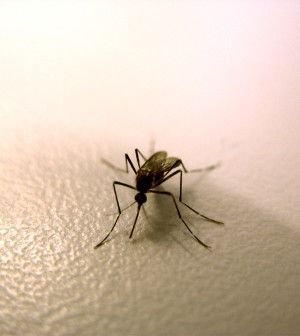- Could Your Grocery Store Meat Be Causing Recurring UTIs?
- Are You Making This Expensive Thermostat Error This Winter?
- Recognizing the Signs of Hypothyroidism
- 10 Strategies to Overcome Insomnia
- Could Artificial Sweeteners Be Aging the Brain Faster?
- Techniques for Soothing Your Nervous System
- Does the Water in Your House Smell Funny? Here’s Why
- Can a Daily Dose of Apple Cider Vinegar Actually Aid Weight Loss?
- 6 Health Beverages That Can Actually Spike Your Blood Sugar
- Treatment Options for Social Anxiety Disorder
New System Targets Germs in Donated Blood Plasma


A new system designed to eliminate germs in donated blood plasma and reduce the risk of transmitting a plasma-borne infection has been approved by the U.S. Food and Drug Administration.
The Intercept Blood System for plasma targets germs including AIDS-causing HIV, hepatitis B and C, and the West Nile virus, the FDA said in a news release.
The system uses controlled exposure to ultraviolet light and a germ-targeting chemical called amotosalen, the agency said. The plasma is then purified to remove the chemical and any byproducts.
While the system has proven effective, no system or device has been shown to eliminate all germs. The Intercept system hasn’t been effective, for example, in eliminating the human parvovirus B19 and spores formed by certain bacteria, the FDA said.
The system’s clinical safety and effectiveness were evaluated in studies involving more than 700 people.
Side effects were comparable to those among people who received untreated plasma, the agency said.
The Intercept system is marketed by Cerus Corp., based in Concord, Calif.
More information
Visit the FDA to learn more.
Source: HealthDay
Copyright © 2026 HealthDay. All rights reserved.










